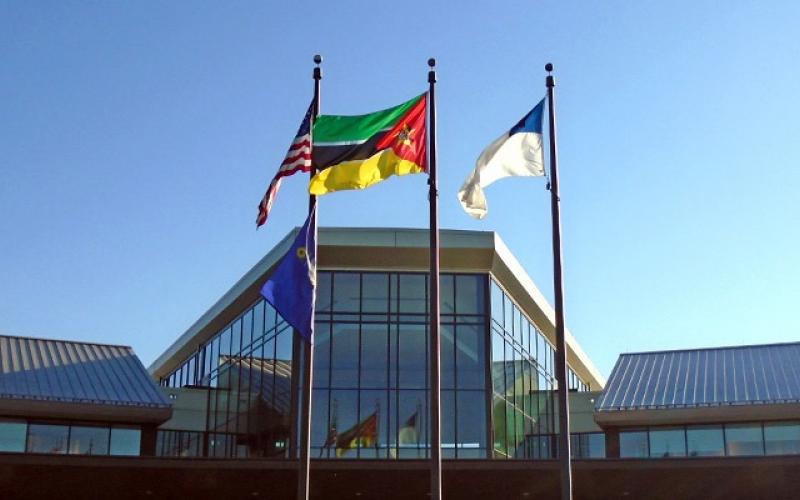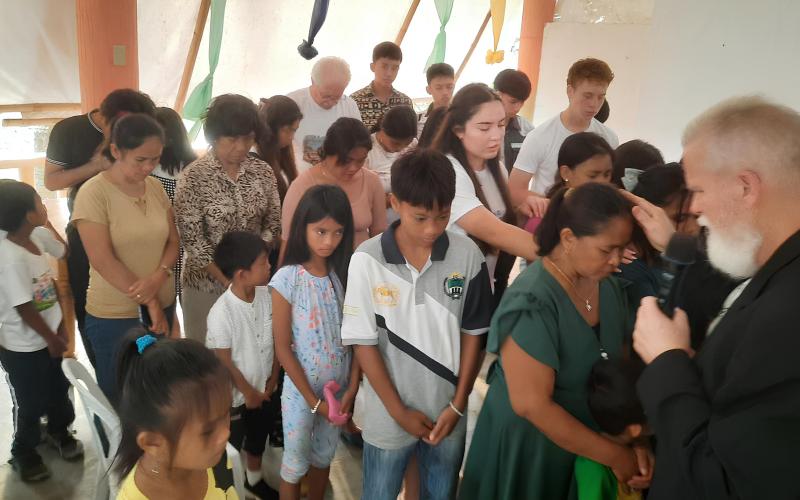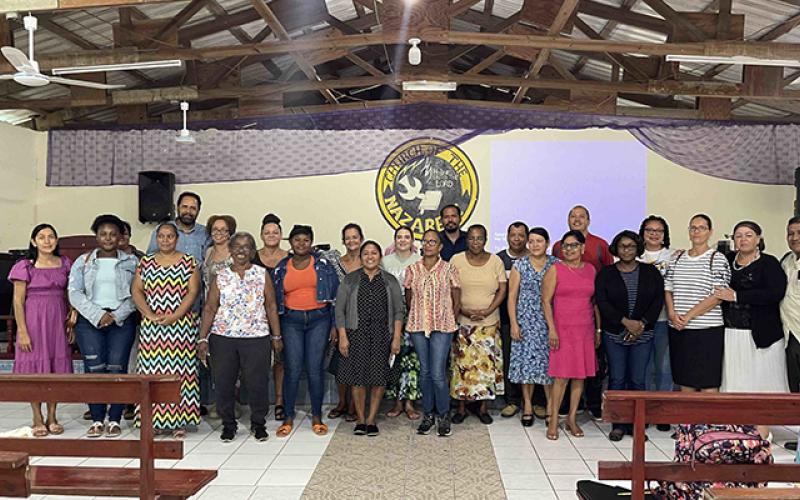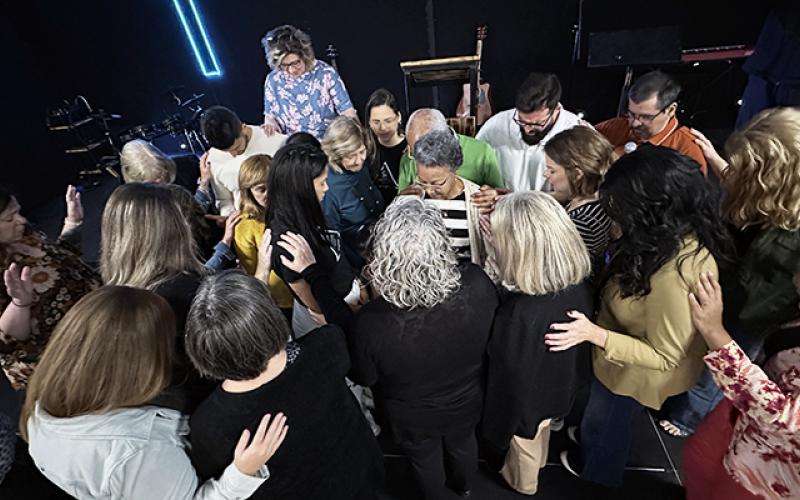
Returning home to a foreign country
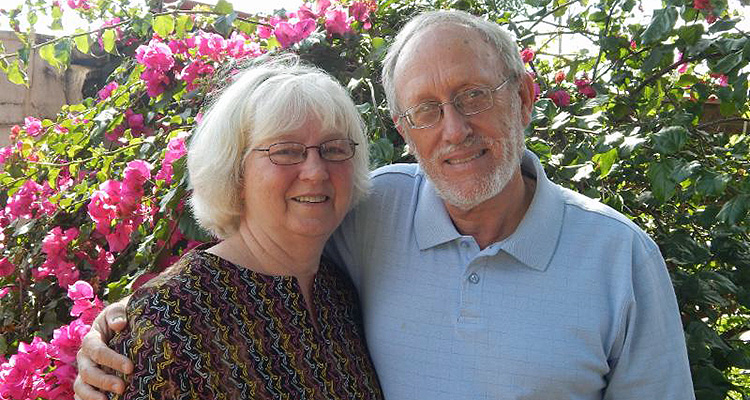
If you look around the home of David and Marquita Mosher in northeast Oklahoma, you'll see remnants of Africa all around.
"A part of your life and your heart is still there — mine is," Marquita said.
The couple served in Africa from the early 1980s until last year, when they reached retirement age and returned to the United States. Missionary service in the Church of the Nazarene is structured so that missionaries generally retire from the field when they reach the retirement age of their country of origin.
For Mike and Julie Shalley, even though they grew up in the States, moving back after more than 30 years of living in Africa was like coming home to a foreign country.
"We were so assimilated to the cultures in Namibia that when you come back to the States ... it's like walking into a whole different world," Julie said. "It's not like the America we left; it's a different America."
Returning missionaries often experience culture shock in their own cultures. They say it's strange to see so many choices at the grocery store or to hear unfamiliar slang or see strange clothing — things that make them feel out of place.
Social norms are different, too.
"One of the things that we got used to (in Mozambique) was you could just drop in on people...and sit and visit as long as you needed," said retired missionary David Restrick, who now lives near Boston, Massachusetts. "And here you never drop in on anybody. You have to make an appointment."
Returning to the States felt like starting over, Marquita Mosher said. There are a lot of logistics to think about, such as finding and furnishing a home, getting a car, renewing your driver's license, finding doctors, and navigating things like Social Security and Medicare.
"When you come back, there's no property, there's nothing to begin to work from, so you do start from square one," Mike Shalley said.
The Church of the Nazarene's Global Mission Office reaches out to missionaries two to three years before retirement to help them start thinking about the logistics and mentally preparing for the transition, Missions Services Coordinator Glynda Wesley said. The denomination provides counseling sessions for retiring missionaries to help them debrief and prepare for the next stage in life.
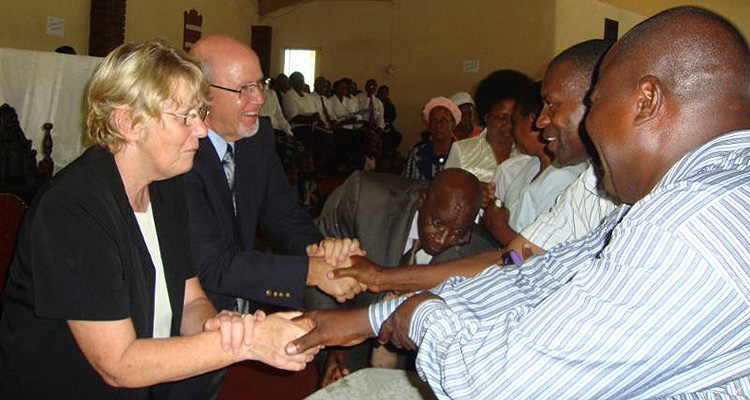
For David and Rhoda Restrick, the year of deputation that retiring missionaries undergo — when they visit churches in their home country to talk about their missionary experience — was therapeutic. They said they intentionally made deputation a time to reflect on their time in Mozambique while learning to transition to the U.S. They also treated it like an adventure, Rhoda said, by making fun tourist stops and visiting family.
But even after two years of being back in the States, longing for Africa still hits, David Restrick said.
"Sometimes missing Africa blindsides us, and in a moment that we least expect it, it all just comes over us," he said.
The feeling might be triggered by something on TV, he said, or the song of a bird outside, or a smell drifting through the air.
Many retiring missionaries say the hardest part of retiring is saying good-bye to the people they served alongside.
"It was the most difficult thing that I ever had to do, to say good-bye, because they had become family," Julie Shalley said. "The Bible promises if you leave one side — father, mother, children, sister, brother, whatever — He's going to give you a hundredfold on the other side, and that's exactly what He did."
The Lord continues to provide when you return home, retiring missionaries said.
"The Lord has been faithful. The church has been very good to us," Marquita Mosher said. "People all around the world have contributed to our lives, and we appreciate that."
NEXT STEP
Retirement is an adjustment for anyone, no matter what profession you were in, Wesley said. A positive thing for retired missionaries, she said, is they have such valuable experiences and perspective to contribute to their home churches.
It was scary to leave missionary work and jump into the unknown, Rhoda Restrick said.
"Our biggest fear, I think, was to be kind of useless after being so busy," she said. "I think that's what a lot of people do, their biggest fear: 'What am I going to do? Am I finished now? Doesn't the Lord have anything more for me?' And we felt like He must have, but we could not see what it might be for a while."
The Restricks are now active in their church, and David teaches at Eastern Nazarene College.
Julie Shalley said she is learning to transfer her call of serving in Africa to her new call of serving in the U.S.
"There is always a part of you that remains in... Africa. It'll never stop," she said.
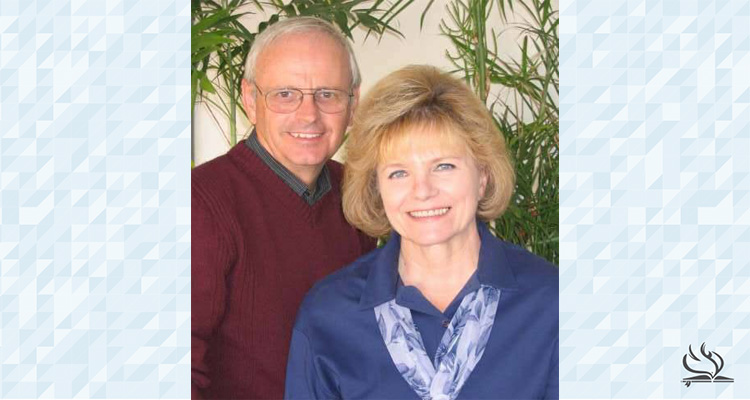
"He's still working. He's got a plan, and we just have to discover what His plan for us is in this next segment of our lives," Mike Shalley said. "It's still a faith journey. Just because (you spent) 36 years in Africa, it doesn't give you an automatic pass."
What helped her, though, was a prayer she prayed right before leaving Namibia. She asked God, "What does this do to your call? You put a very specific call on my heart, and it's as strong as ever, maybe even stronger. Now what am I supposed to do with that?' And His reply to me was, 'Do you think I only gave you that call for Namibia?'
"That helped me a great deal," Julie said, "the fact that...He is helping me to transfer that call to the United States."

